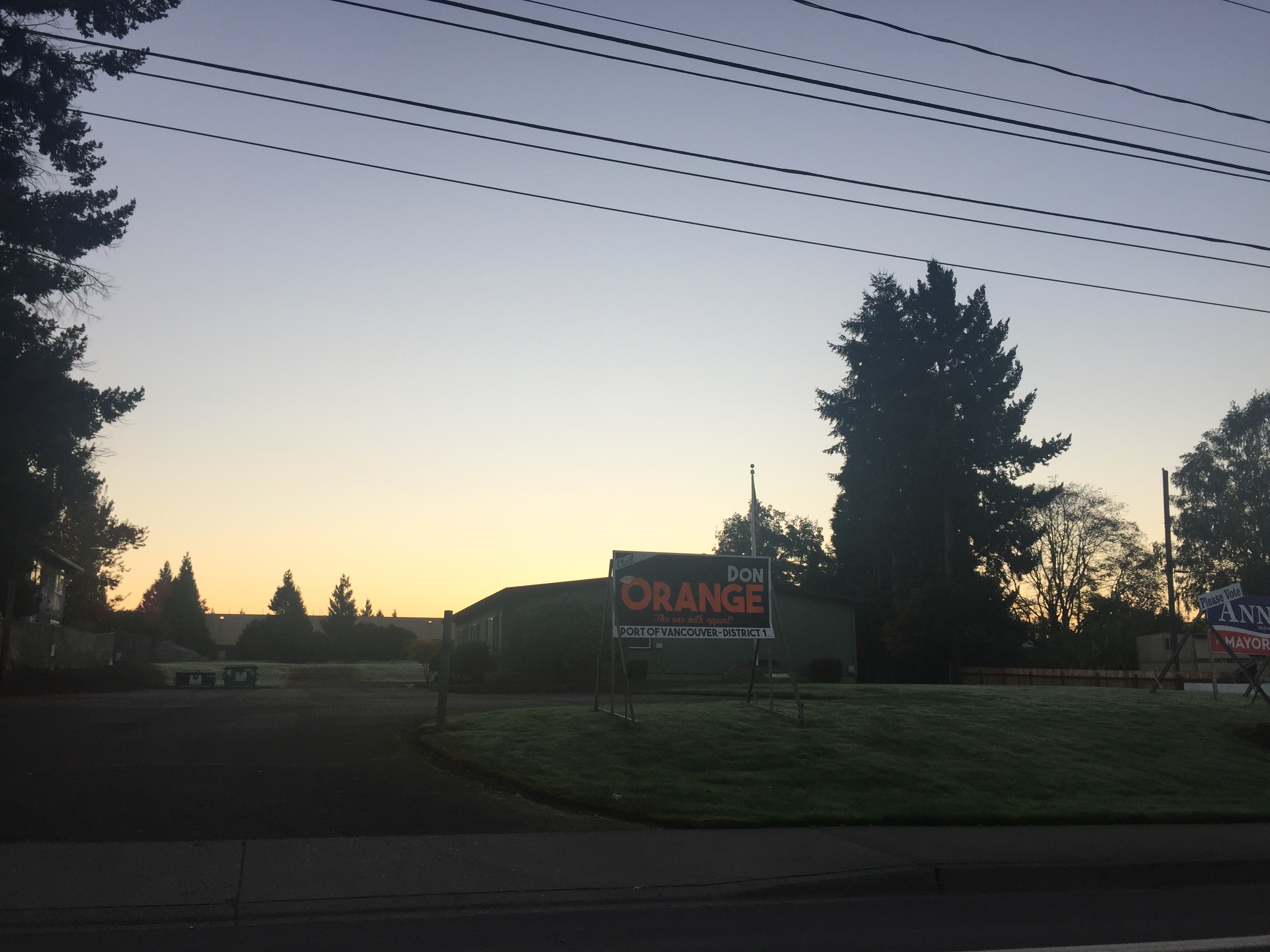In this year’s general election on Nov. 7, Orange faces Greene in what many believe to be a referendum on the proposed oil terminal. The proposed terminal would run through the existing rail lines in Skamania, Clark, and Cowlitz counties.
The race has earned headlines such as one from the New York Times on Oct. 19 that reads “Backers of Oil Terminal Pour Money Into Washington Port Race.”
Kris Greene has received nearly $600,000 in donations as of press time, $370,000 of which has come from the Tesoro and Savage Companies, the oil corporations advocating for the oil terminal.
Meanwhile, Don Orange has accepted over $400,000 in donations. About $370,000 are in-kind donations, which do not go directly to a candidate, from Washington Conservation Voters, an environmentalist group opposing the oil terminal.
These type of donations include donations of resources, volunteers, and advertising.
When asked why he has taken money from oil companies, Greene said, “both campaigns have taken hundreds of thousands of dollars.” Greene also said “Vancouver Energy is a local company” and “operating a fossil fuel terminal without an accident or spill, they have pumped 10’s of millions of dollars into our local economy and has employed over 1000 family wage jobs over the many years they have Safley (SIC) operated.”
Vancouver Energy, which is a subsidiary of Tesoro (now renamed Andeavor) and Savage Companies, would operate the proposed terminal.
The “fossil fuel terminal” Greene is talking about is a gasoline terminal, according to a representative for Andeavor. “They’re very different,” he said of terminals carrying oil and gasoline. Crude oil for instance is more difficult to clean up after a spill. According to the U.S. Geological Survey, oil spills often take up to 30 years to clean up.
OPB reported that in in Aug. of 2016, a Union Pacific oil terminal derailed along the Columbia River and over 40,000 gallons of crude oil spilled into the Gorge.
Over email, Greene said took the oil company money because “more than 50 percent of our fellow citizens have no idea about what’s happening down at the port, I can’t rely on our local paper or television to get my message out.”
Orange declared, “This infusion of oil money is a blatant attempt to trick our community into accepting an oil terminal that they clearly don’t want. It is an attempt to purchase a seat on the Port of Vancouver Commission.”
Greene’s former campaign strategist and close friend, Robert Sabo has alleged that Greene has been working directly with the oil companies. In an interview with the Columbian, Sabo said, “Big Oil is completely dictating where every penny is going,” in the Greene campaign. Following this interview, Greene filed a gag order to prevent Sabo from speaking further, but this motion was denied.
Greene had “no comment” when asked about the the gag and restraining order.
Interestingly, Greene is a part of the Middle Class Alliance, along with Washington State University Vancouver professor, Dr. Carolyn Long. One of the tenets of their platform is reducing the influence of money in politics.
On the opposing side, Carolyn Crain, a former state legislature candidate, filed an official inquiry with the Clark County Auditor’s office challenging Orange’s residency, claiming that he still resides in his house located just outside the port district.
Crain knocked on the door to Don Orange’s supposed residence nineteen times between May and July 2017, according to her filing documents.
Orange has stated that he moved to the port district, and provided signed affidavits, billing statements, and a rental agreements as evidence. The case was ultimately dismissed.
Despite telling the Columbian in July that he had no involvement in the residency challenge, The Columbian reported on Oct. 17 that emails leaked by Robert Sabo show that the Greene campaign had communicated with Crain regarding the challenge.
Crain’s explanation? The Columbian says she claimed to be hacked.
When asked about Carolyn Crain’s involvement and Orange’s residency, KRis Greene had “no comment at this time.”
Although the commissioner will represent Port District 1, all of Vancouver votes in the general election for the candidates.
Why does any of this matter?
“If you care about the environment, about the air quality in Vancouver, about the Columbia River – then you should care about the Port race,” says Don Orange.
When asked why college students specifically should care about this election, Kris Greene said, “with so many college graduates not being successful in finding full employment, our Port provides many economic benefits such as a driver for creating jobs!”
Emily Elder, a Public Affairs junior at Washington State University Vancouver and a supporter of Don Orange’s campaign said that “depending on how you feel about the oil terminal this is an important race to follow.”
Don Orange also commented as to why the port commissioner race is important for college students. “Local races like this are where every vote really counts, where an election can be decided by a handful of votes. Young people can help turn the tides of an election, you have an energy and determination we need to get things done. I hope students do care because we need you to!”

